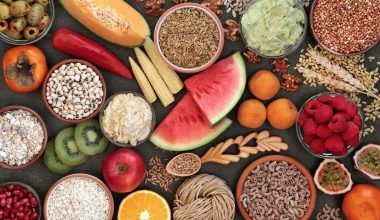What Is Blood Sugar?
Blood sugar, or blood glucose, refers to the concentration of glucose in the bloodstream. Glucose is the primary source of energy for the body’s cells and comes from the foods we eat, particularly carbohydrates. The body regulates blood sugar levels through insulin, a hormone produced by the pancreas, which helps transport glucose into cells to be used for energy or stored for later use.
Why Is Managing Blood Sugar Critical?
Maintaining balanced blood sugar levels is essential for overall health. Stable blood sugar prevents energy crashes, reduces inflammation, and lowers the risk of chronic diseases such as diabetes, heart disease, and obesity. It also supports cognitive function, mood stability, and long-term metabolic health.
Poor blood sugar management can lead to insulin resistance, metabolic syndrome, and type 2 diabetes. Over time, uncontrolled blood sugar can damage organs, nerves, and blood vessels, increasing the risk of serious health complications.
Consequences of Poor Blood Sugar Management
Failing to manage blood sugar effectively can result in numerous health problems, including:
- Glycation – This occurs when excess sugar in the blood binds to proteins, leading to the formation of advanced glycation end products (AGEs). These compounds contribute to aging, inflammation, and various chronic diseases.
- Increased Risk of Diabetes – Chronic high blood sugar can lead to insulin resistance, a key precursor to type 2 diabetes.
- Heart Disease – Elevated blood sugar levels can damage arteries, increasing the risk of heart attacks and strokes.
- Nerve Damage – High blood sugar levels can lead to neuropathy, causing pain, tingling, or numbness, especially in the extremities.
- Vision Problems – Uncontrolled blood sugar can cause diabetic retinopathy, potentially leading to blindness.
- Kidney Disease – Excess sugar can impair kidney function, increasing the risk of kidney failure.
- Weight Gain and Obesity – Insulin resistance can lead to weight gain, particularly around the abdomen.
- Cognitive Decline – Poor blood sugar regulation is linked to a higher risk of Alzheimer’s disease and other forms of dementia.
- Mood Swings and Fatigue – Blood sugar spikes and crashes contribute to irritability, anxiety, and chronic fatigue.
- Poor Wound Healing – High glucose levels slow down the healing process, increasing the risk of infections.
15 Powerful Tips to Lower Blood Sugar Naturally
For a busy person, incorporating simple yet effective strategies into daily life can significantly improve blood sugar control.
1. Eat Balanced Meals with Protein and Fiber
Combine protein, healthy fats, and fiber-rich carbohydrates in each meal to slow glucose absorption and prevent spikes.
2. Reduce Refined Carbs and Sugar
Limit white bread, pasta, and sugary beverages, which cause rapid blood sugar spikes and crashes.
3. Increase Your Intake of Non-Starchy Vegetables
Leafy greens, broccoli, bell peppers, and cauliflower provide essential nutrients without raising blood sugar significantly.
4. Prioritize Healthy Fats
Include sources of healthy fats like avocados, nuts, seeds, and olive oil to improve insulin sensitivity.
5. Stay Hydrated
Drinking plenty of water helps flush excess sugar from the bloodstream and supports overall metabolism.
6. Exercise Regularly
Engage in at least 30 minutes of physical activity, such as brisk walking, strength training, or yoga, to improve insulin function.
7. Get Enough Sleep
Lack of sleep disrupts insulin sensitivity and increases cravings for high-carb foods. Aim for at least 7-8 hours per night.
8. Manage Stress Effectively
Chronic stress leads to the release of cortisol, which raises blood sugar. Try meditation, deep breathing, or journaling.
9. Incorporate Apple Cider Vinegar Before Bed
Drinking one tablespoon of apple cider vinegar diluted in a glass of water before bedtime can help stabilize blood sugar levels overnight by improving insulin sensitivity.
10. Eat More Fermented Foods
Probiotic-rich foods like yogurt, sauerkraut, kimchi, and kefir support gut health and may enhance blood sugar control.
11. Choose Whole Grains Over Refined Grains
Opt for quinoa, brown rice, and whole oats instead of white rice and processed grains.
12. Implement Intermittent Fasting
Time-restricted eating can improve insulin sensitivity and help regulate blood sugar levels.
13. Take Short Walks After Meals
A 10-15 minute walk after eating can help lower post-meal glucose levels by promoting glucose uptake into muscles.
14. Use Cinnamon in Your Diet
Cinnamon has been shown to enhance insulin function and lower fasting blood sugar levels.
15. Limit Alcohol Intake
Excessive alcohol consumption can cause blood sugar fluctuations and impair insulin sensitivity.
Conclusion
Effective blood sugar management is crucial for overall health and well-being. By making small, sustainable lifestyle changes—such as improving diet, increasing activity, and managing stress—anyone, including those with busy schedules, can maintain stable blood sugar levels. Incorporating apple cider vinegar before bed, staying hydrated, and consuming nutrient-dense foods can further optimize blood sugar regulation, helping to prevent long-term health complications.
Taking control of your blood sugar today will set the foundation for a healthier future!





